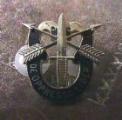"AQ's dramatic decline after the Soviet withdrawal from Afghanistan is well documented, as is AQ's failure to generate any significant traction in his calls for action against the Saudi government. AQ has only succeeded in drawing support when they fight foreign military intervention: regardless of their aspirations, that's what actually sustains them."
The Soviets withdrew in Feb '89, which coincides with the birth, not the decline of AQ. You've posted this position before, it confused me then, it confuses me now. AQ grew out of the Soviet invasion, but did not exist because of it, but rather it came to exist I believe because men like bin Laden came to realize from the experience of facing down the Soviets that they were not hopeless in facing Western nations exerting their influence onto Muslim populaces.
What really gave AQ legs was the following year when bin Laden offered his services to the King of Saudi Arabia to defend against Saddam continuing his advance from Kuwait, and his rejection and the subsequent decision by the King to bring even greater Western influence into the region instead to perform that role.
As to "traction against the Saudi government" your position here is factually way off base as well. It is a matter of public record that average and elite Saudi citizens are the primary source of funding to AQ. it is a matter of public record that Saudi citizens made up the bulk of the 9/11 attackers as well as the bulk of the foreign fighters that form the core of every aspect of AQ's operations, from fighters to admin. It is also a matter of public record that the Saudi government has been aggressively suppressing every hint of subversion and insurgency at home, aggressively nipping in the bud any effort to organize at movement there; from last weeks "day of rage" to the 110 AQ members rolled up last March coming in from sanctuary in Yemen to wage attacks (there is little good terrain to hide in in Saudi Arabia, and the government eyes and ears are too good to hide among the people); 700 detained in 2008 as terrorists, with only 200 later released; and 6 cells totaling 200 in 2007. Plus countless, nameless others rolled up without warrant, held without charge, and treated without rights. Anyone who cannot see that AQ inspired insurgency is alive and well in the Saudi populace is blind to the realities of insurgency and the realities of what the indicators of high level conditions of insurgency look like in countries where the populaces are so rigorously monitored and controlled as they are in these Middle Eastern Kingdoms..
As to operations against foreign militaries? That has been no more than a target of opportunity that we offered up; not the central point of his campaign, but rather an opportunity to advance his campaign.
As to "bin Laden's message taking root" this statement misunderstands the role UW and the role of ideology by a UW actor. What the people what is liberty, respect and justice. Not as measured in the American Heartland, but as measured in their respective Muslim cultures. Ideology does not create insurgency or turn people into insurgents. Ideology does not "radicalize" people, it is government action that radicalizes people. Once so radicalized by government, they are then open to listen to the motivational message of such ideologies that encourage them to act. bin Laden is not causing any of this, he is just taking advantage of it. He is like an Adolf Hitler. A man of his times; and if not him it would be someone else filling this role. If he is killed, if Hitler had been killed, someone else would have stepped up eventually to leverage those same conditions.
The German people were "radicalized" by the Treaty of Versailles and its effects on their national Psyche. The Depression, and the rise of Nazism, and the personality of Hitler all merely piled onto that original base of radicalization. Similarly bin Laden, AQ and Islamism pile onto the base radicalization of the nature of governance in the Middle East and the nature of Western influence in the Middle East.
In other words, AQ and bin Laden are largely tactical symptoms of the much larger strategic problem. If "defeated" will be replaced in time so long as the larger strategic base of the problem persists. That is why these movements in Tunisia, Egypt, Libya and across the region are so strategically important; as unlike anything the US has done in the GWOT to date, these events cut to the strategic core of the problem we confront.







Bookmarks